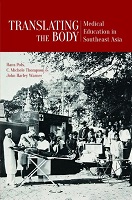Chapter 2 Trouble with “Status”
Competing Models of British and North American Public Health Nursing Education and Practice in British Malaya
Author(s)
Wall, Rosemary
Rafferty, Anne Marie
Collection
WellcomeLanguage
EnglishAbstract
This chapter has explored the role of training and education as a light-
ning rod for rival models and interpretations of public health nursing. Nurses faced the constraints of conventional British social norms of class and gender in Malaya, contrasted with respect, status, and opportunities from North Americans. Hostility was displayed towards Americans within the Malayan medical services, affecting the way in which the RF-trained British nurses perceived colonial society, following their interaction with their friendlier and more egalitarian cross-Atlantic colleagues. The chapter also reveals how British, American, and international organizations’ efforts and funding to improve public health nursing in rural areas coincided with periods of increased nationalism in the 1920s and communism in the late 1940s and early 1950s. In the 1920s, in particular, the RF, rather than the British, drove public health nursing in Malaya, enhancing health care in politically fragile rural areas.
Book
Translating the BodyKeywords
British public health nursing; North American public health nursing; education; practice; British MalayaDOI
10.2307/j.ctv1xxzqpOCN
1019836045Publisher
National University of Singapore PressPublisher website
https://nuspress.nus.edu.sg/Publication date and place
Singapore, 2017Grantor
Classification
Nursing and ancillary services


 Download
Download